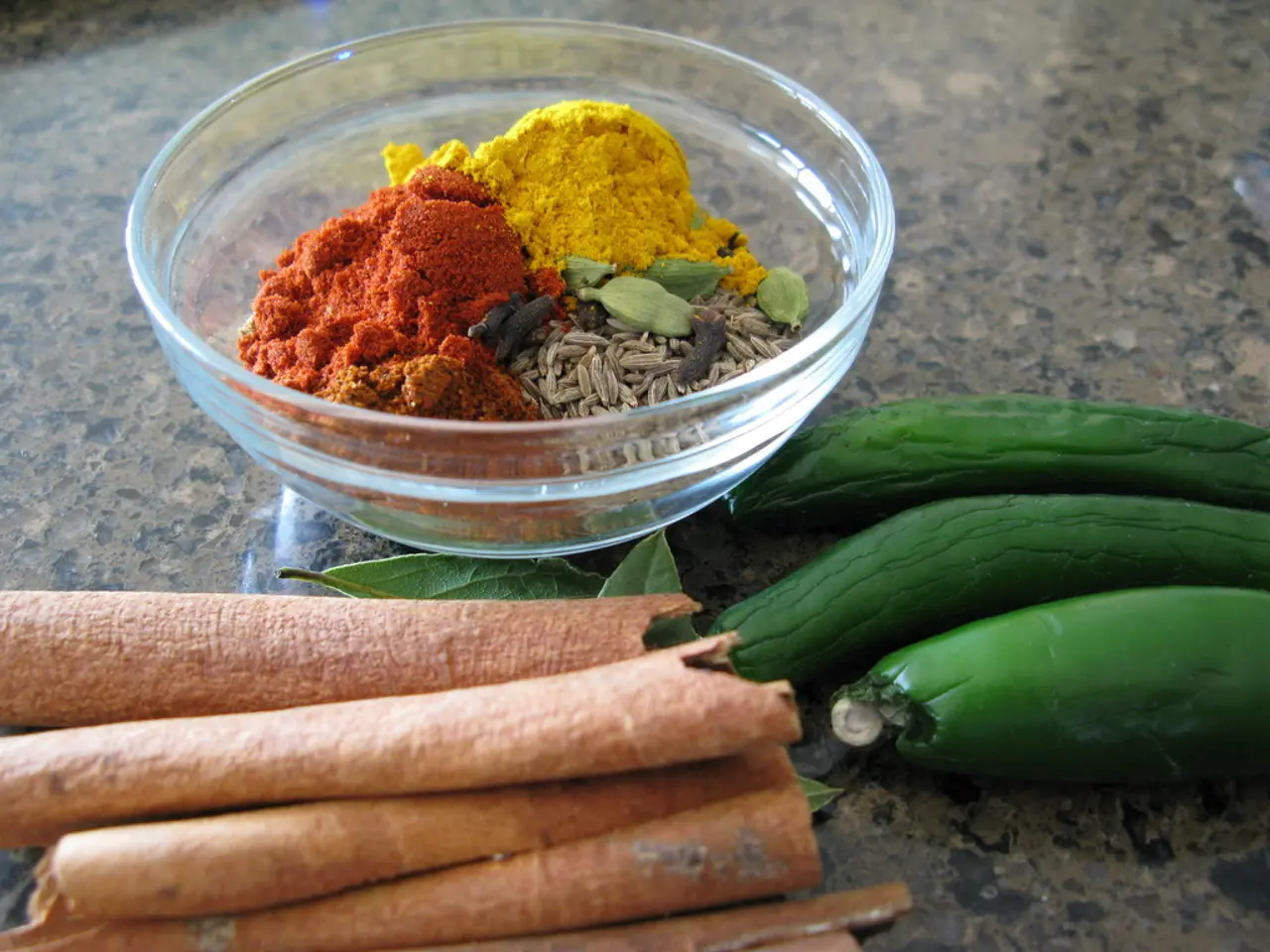Enhancing Low Testosterone with Diet: Discover the Eating Habits That Can Raise Testosterone Levels
In the quest for optimal health and well-being, maintaining balanced hormone levels is crucial. One such hormone is testosterone, a sex hormone that plays a significant role in fertility, sexual function, bone health, and muscle mass. Fortunately, a well-balanced diet can help support testosterone production and regulation.
A plethora of foods have been found to be beneficial for testosterone levels. Cruciferous vegetables, such as broccoli, cauliflower, and Brussels sprouts, are rich in fiber and antioxidants and help lower excess estrogen, allowing testosterone to function better. White button mushrooms may inhibit aromatase, the enzyme that converts testosterone to estrogen, thus supporting testosterone regulation. Avocados, packed with healthy monounsaturated fats, vitamin B6, folate, and vitamin E, all aid in testosterone production and regulate cortisol levels. Raw garlic, especially, contains allicin that may help raise testosterone, while also being rich in fiber, B-complex vitamins, vitamin C, zinc, and selenium, all supporting testosterone production.
Oysters and other zinc-rich foods, like beef, pork, and pumpkin seeds, are essential for testosterone regulation and male fertility, as zinc is critical for the production and regulation of testosterone. Additionally, foods high in vitamin A (carrots, sweet potato), vitamin C and E (oranges, spinach, almonds), and selenium (Brazil nuts) provide additional beneficial nutrients for testosterone production.
On the flip side, certain foods should be avoided or limited to maintain optimal testosterone production. High-fat dairy products contain natural estrogens that may lower testosterone and sperm production, so switching to low-fat or plant-based alternatives is recommended. Excess soy may reduce testosterone due to its phytoestrogen content, so moderation or alternative protein sources like lentils, beans, or eggs are advised. Processed meats, sugary drinks, trans fats, excessive caffeine, alcohol, and plastic-packaged or microwaved foods may negatively impact male fertility and hormones.
In addition to diet, a balanced lifestyle including resistance training, regular physical activity, stress management, and limiting smoking and alcohol further supports healthy testosterone levels. Pomegranates, for instance, may support heart health and stress reduction, while ginger extract may help increase testosterone production, although more research is needed to confirm this. Losing weight, exercising regularly, getting enough sleep, and reducing stress can also help increase testosterone levels.
In conclusion, maintaining a dietary approach that prioritizes whole foods, limits alcohol, saturated fats, and highly processed products, and avoids or limits certain foods like high-fat dairy, soy, processed meats, sugary drinks, trans fats, excessive caffeine, alcohol, and plastic-packaged or microwaved foods can help optimize testosterone naturally. By incorporating these testosterone-friendly foods and lifestyle practices, individuals can support their overall health and well-being.
- For optimal health and well-being, cruciferous vegetables like broccoli, cauliflower, and Brussels sprouts, which are rich in fiber and antioxidants, aid in better testosterone function by lowering excess estrogen.
- White button mushrooms, recognized for inhibiting aromatase, help support testosterone regulation.
- Avocados, packed with healthy monounsaturated fats, vitamin B6, folate, and vitamin E, assist in testosterone production and help regulate cortisol levels.
- Raw garlic, containing allicin, is known to help raise testosterone while also providing B-complex vitamins, vitamin C, zinc, selenium, and fiber, all supporting testosterone production.
- Oysters and foods rich in zinc, such as beef, pork, and pumpkin seeds, are vital for testosterone regulation and male fertility, as zinc is crucial for testosterone production and regulation.
- Vitamin A-rich foods like carrots and sweet potatoes, vitamin C and E-rich foods like oranges, spinach, and almonds, and selenium-rich Brazil nuts provide additional nutrients for testosterone production.
- To maintain optimal testosterone production, high-fat dairy products, which contain natural estrogens that lower testosterone and sperm production, should be replaced with low-fat or plant-based alternatives.
- By adopting a balanced lifestyle that includes resistance training, regular physical activity, stress management, limiting smoking and alcohol, incorporating foods like pomegranates and ginger, losing weight, exercising regularly, getting enough sleep, and reducing stress, individuals can further support healthy testosterone levels and optimize their overall health and well-being.




